Being a Hoya is expensive.
For the 2015-16 school year, Georgetown University estimates that its undergraduates will be spending between $69,770 and $70,140 this school year alone, depending on school and class year (sorry, NHS). That’s a pretty steep cost for most people considering that the median household income in the U.S. was $53,891 in 2014, according to CNN.
Of course, since you’ve already submitted your deposit and are officially a member of the Class of 2019, you’ve probably already figured out a payment plan for attending. Chances are, you might need financial aid to help cover the high tuition costs here.
So you qualified for financial aid
Georgetown prides itself on its need-blind admissions policy and its pledge to meet all American students’ determined financial need. With a relatively paltry endowment of around $1.4 billion, however, it isn’t known for being as generous as schools like Harvard or Stanford. Loans are a component of most students’ financial package. According to one 2011 estimate, 39 percent of Hoyas graduated with debt. Each borrower averaged $28,035.
The most valuable part of your package is the one that includes your grants and scholarships. They are investments in you that you never have to pay back. It’s free money! You might be asked to write a few thank you cards to donors, but it’s a nice experience and they often provide free cupcakes.
Loans, of course, are the part of your package that makes you cry tears of sadness. It’s money that you have to pay back. Subsidized loans—offered through the government based on need—won’t acquire interest while you are in school. Unsubsidized loans—offered through the government and private lenders—do get acquire interest during your undergraduate career.
Work Study
Work study, meanwhile, is a part of your package that you have to literally work for in order to get. You won’t see it as a credit in Student Account Services as you would the rest of your aid. Instead, you will have to get a qualifying job in order to earn it—capitalism, am I right?
Work study is a lot like having a regular job, but whatever money you make from it isn’t counted against you on the next year’s financial aid application (any non-work study income over $6,310 will increase your expected family contribution). It’s money the federal government gives to schools so that they can provide student jobs. For example, if you get a work study job at the library that pays $10.50 an hour (D.C. minimum wage, by the way), the library only pays you a portion of that salary. The other portion comes from the federal government — that’s money that you are “working” out of your work study allowance. Some jobs won’t let you work beyond the amount your work study, so make sure you plan out how many hours you can work each week before you max out.
There is a wide range of work study jobs available — some jobs will let you get away with doing little to nothing and some jobs will leave you feeling very, very tired. In most cases, this is reflected in a minimal (but worthy) wage difference.
Finding a Job
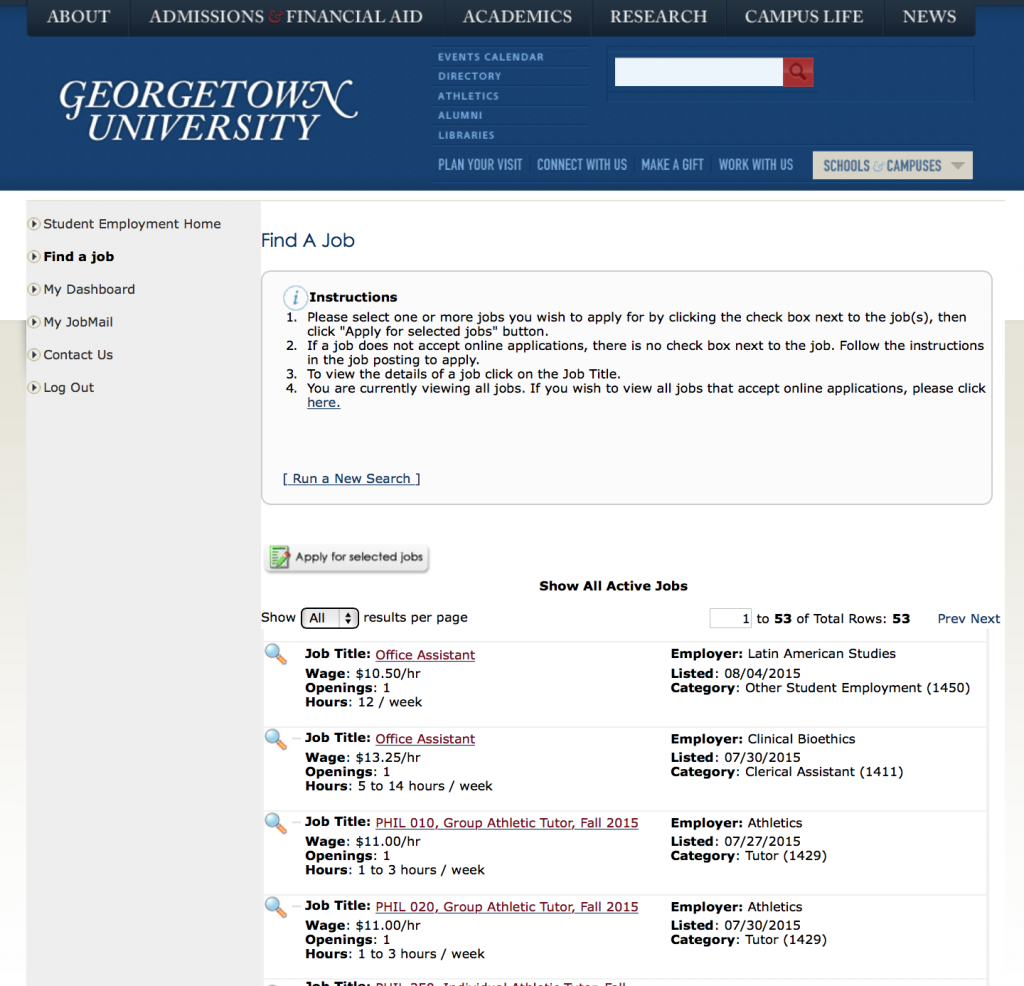
HoyaWorks, the website for finding on-campus jobs.
Most jobs that are available to students are posted on the Student Employment Office website. The website, also known as HoyaWorks, is easy to use and you can find any available job’s wage, location, and expected hours.
You need a resume for almost every job you apply for, but don’t worry about making it Goldman Sachs ready. Having a one page resume that is clean and shows of your skills is great. If you’ve never had a real job before, you can add your volunteer experience. Your resume is pretty much the only place where it’s O.K. to brag about the otherwise now-irrelevant accomplishments you had in high school. Anything that shows you are a leader in some way will do the trick. Go on and brag about being the mathletes captain or drum major one last time.
What’s the right job for you?
There are a lot of jobs available and getting one isn’t too hard for students, especially if you have work study. But not every job will be a good fit.
Work at the RHO
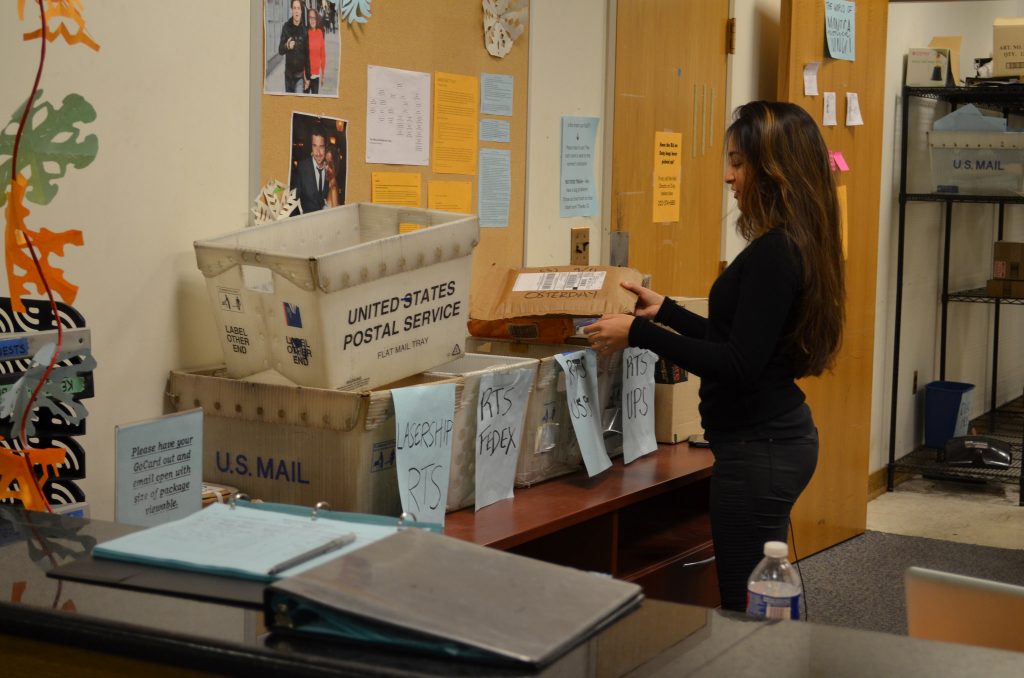
Sorting packages at the RHO. Photo: Saman Asdjodi/Georgetown Voice
If you are trying to do as little as possible, the best work study job you can get is one at any of the Residential Hall Offices, or RHOs [Full disclosure: the author of this article is a RHO employee]. The RHOs are places where people pick up keys and packages. You mostly sit around and you do your homework, except at the beginning of the semesters when people move-in or get books and the end of the year when everyone hands in their housing key. You work with two other undergraduates in most shifts so you’re never really alone.
Best of all, your manager is also an undergraduate student so they’re lax about your schedule and understand when things come up. Since you don’t need work study to get an RHO job, you are able to work beyond your allocated work study amount.
Guard the residence halls

Student guard at work. Photo: Joshua Raftis/Georgetown Voice
Arguably the second best work study job is working as a student guard. You report to the Department of Public Safety, or GUPD, but most guards will tell you that they’re pretty easy to work with. You sit at the front desk of student housing buildings and swipe people student IDs for four hours at a time. You are expected to work some weekend nights and early mornings. Also, you’re not allowed to use your computer while on shift but enforcement of that rule seems to vary (but not having your computer there to distract might make you more productive if you want to study at your desk).
But perhaps the best part of this job is that you might someday be promoted to rover, at which point you work four hour shifts giving people breaks. According to the Voice’s rover friends, this means getting paid four hours while doing about an hour’s worth of work (caveat: you have to cover for guards if they don’t show up to shifts). Like with an RHO job, you are able to work beyond your designated work study amount.
Front desk job
Most other front desk jobs are similarly chill. Every once in a while you’ll have to do a little more work but typically it’s not super high stress and looks better on your resume when you have a job that offers a little more responsibility than sitting around in an RHO. Depending on the office, these jobs may pay better than the RHO and guard jobs.
Pro tip: if you want this kind of job, try to get one in your school or major’s office. It will make it easier to get cushy with your dean or department chair and believe me this is a good thing, especially later on when you need to get into classes or even need a professional recommendation. Some good/fun places to look: the Georgetown Scholarship Program office, the President’s Office, and career center.
Sharpen up your skills
Skills-based jobs tend to be more demanding but they pay much, much better than other jobs so you can make the money you want in less time. You won’t get a tutoring job as a first semester freshman, but if you are a techie or graphic designer, you can find a jobs with the MSB Technology Center or the libraries or even the Berkley Center for special projects.
If you’re a good writer, you can also consider getting a job as a communications assistant. Lots of offices need people to do write-ups or releases and it’s a good resume builder. They don’t pay much more than the RHO or guard desk but they will be more engaging and you’ll feel like more productive human.
[pullquote align=”right” cite=”” link=”” color=”” class=”” size=””] Skills-based jobs tend to be more demanding but they pay much, much better than other jobs so you can make the money you want in less time. [/pullquote]
For those looking to get a nice bump on the resume, you can get a job as a research assistant, either with a professor or at the Berkley Center for Religion, Peace and World Affairs. Most research assistants for professors don’t get paid, and those that do don’t get paid hourly. If you have high financial need, you can qualify for a stipend of a few hundred dollars, handed out in full at the end of each semester you are a research aid. At the Berkley Center, meanwhile, you get $12.50 an hour as an undergrad. The office is a bit of a walk, but it could be worth it depending on your priorities.
If you are feeling up to leaving campus a few days a week, you can also consider working for DC Schools, DC Reads, ASK, or Jumpstart. DC Reads, DC Schools, and ASK involve you traveling into the city and offering tutoring services to kids and adults. Jumpstart has you looking after preschoolers. You only get paid if you have work study but it pays decently and there is a great emotional pay off. These are some of the only jobs on this list where you feel like you are actually making a difference in people’s lives. The work is typically described as enriching and rewarding. Also, if you work a certain number of hours with Jumpstart, you can earn a scholarship on top of your pay.
In short, you can work a wide range of jobs. And if you find that something isn’t your fit, you can always look for a new one with each incoming semester. Working can be tough, but if you find the right job, the extra cash can make $67k just a tiny bit more manageable.
Editor’s Note: This post was updated to reflect 2016-2017 financial estimates. This post was also updated to change a misstatement. It had previously stated that the federal government will pay the entirety of a work study salary, where it will actually pay a portion of it.


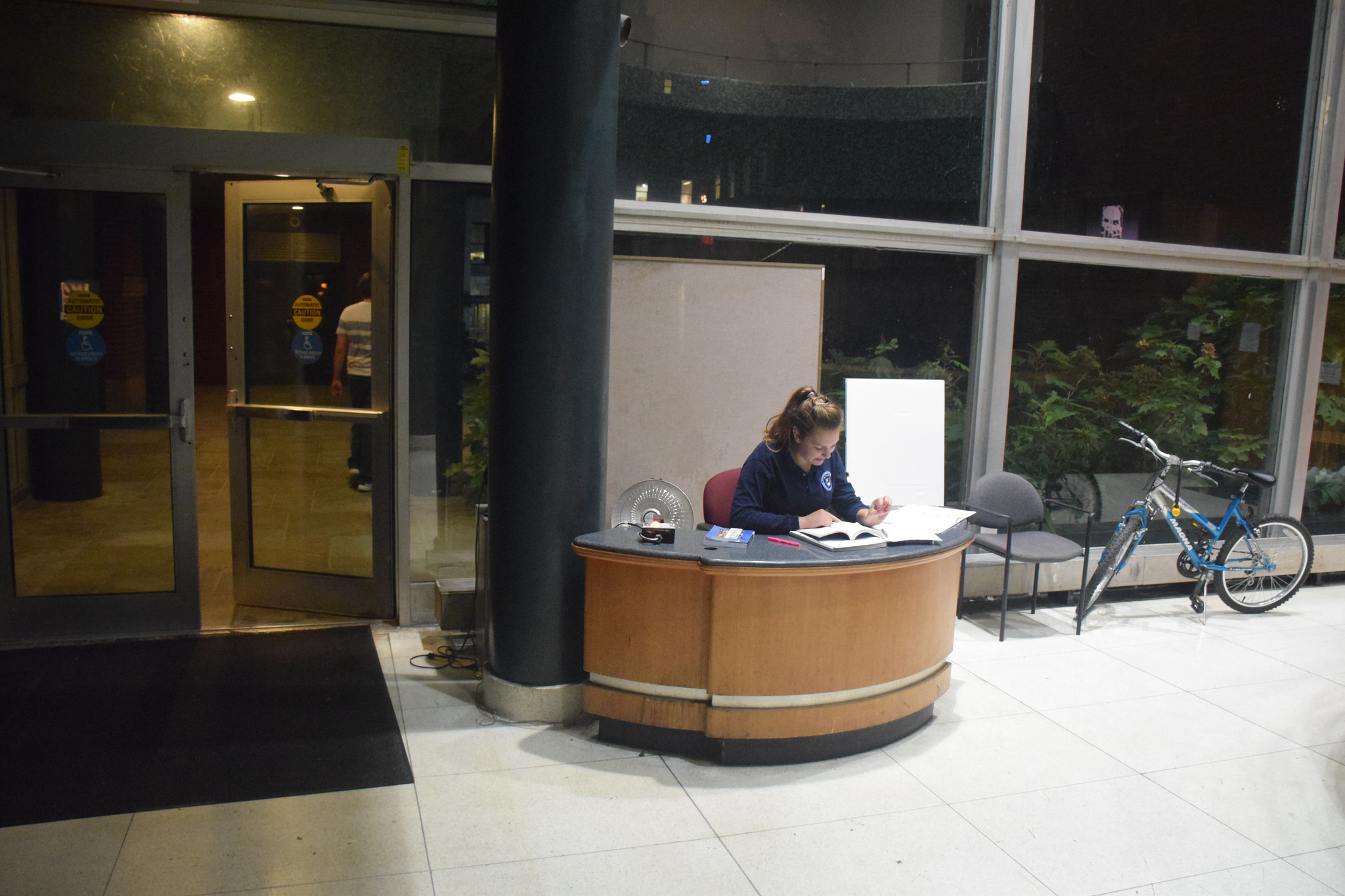
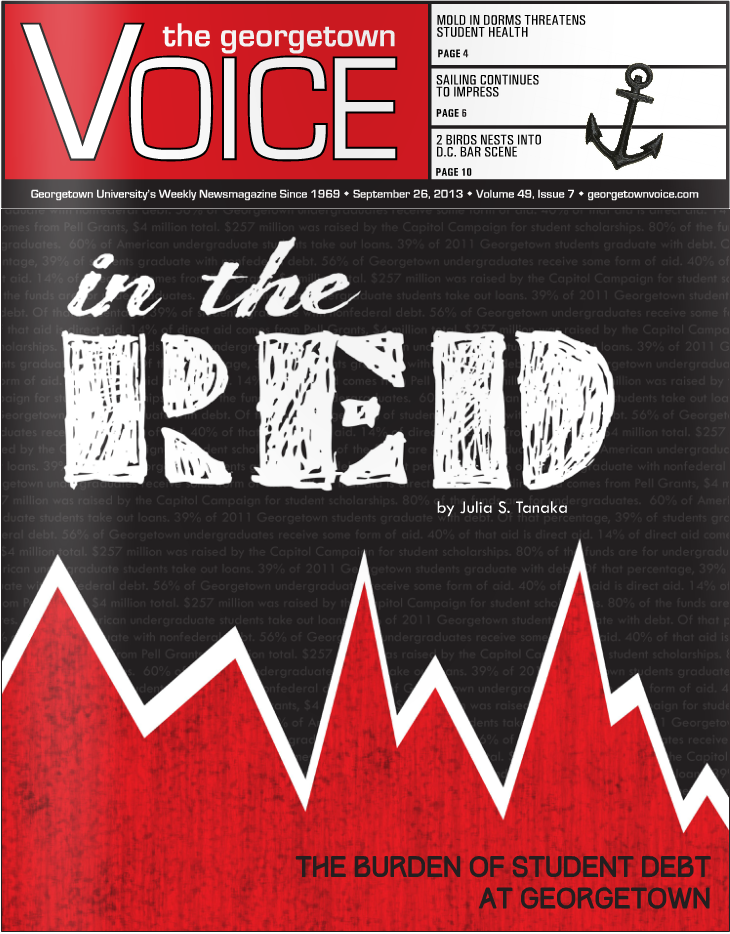
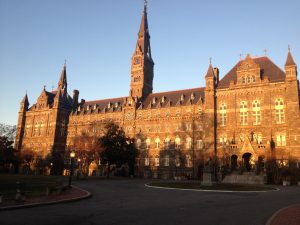
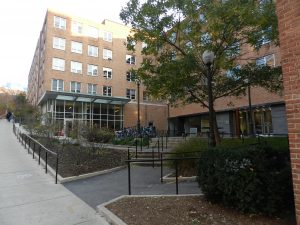
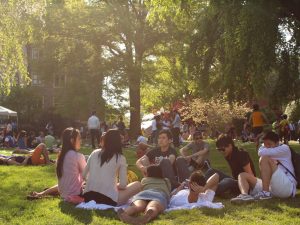
Work study doesn’t pay 100% of the student’s wage. It pays 50% and the University (whichever department the student works for) pays the other 50%.